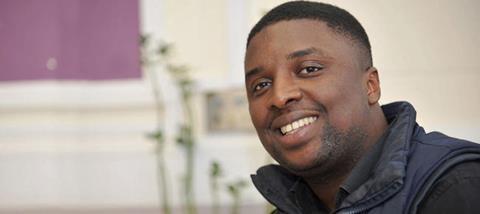Mo Timbo left a life of crime and violence to become a powerful evangelist for Jesus

I grew up with my mum and dad on Walworth Road in south-east London. I was the eldest son. Things got a bit shaky when my parents split up and my dad moved out. Dad had always been my role model, my inspiration, the person I went to for advice and guidance, so when he left I felt that I didn’t have anyone to look up to. He would call and check up on me but, when he left the house, I lost a role model.
The nearest alternatives were the local drug dealers; the guys with big reputations, nice cars and nice watches. Not only did they become people I wanted to follow, the became people I idolised. I idolised the way these guys were popular, the way these men had respect, the money they had. As much as there was something missing in my home life, I wouldn't say it was the only reason I got involved in gang life. I wanted to get involved. These men showed me love, showed me care – they would buy me little things, so I had a strong desire to be part of their group.
You don’t wake up in the morning thinking: “I’m part of a gang”; it’s just the friends that you hang out with. It felt very normal. Gang violence happened occasionally, but it wasn't the majority of the time – mostly we played football and video games. But when I started to realise that there were other people who didn’t like us and there were people that we didn't like, I was filled with paranoia. Every day I wondered what type of day it would be: would it be a normal day with my friends, or would it be a day when we would have to run from this gang, or we’d have to chase that gang?
I remember when my friend was shot. I remember feeling fear, followed by luck (I had been standing right next to him and it could so easily have been me) and then anger. I wanted to show people around me that I wasn't afraid.
Arrested
The turning point for me came when I got arrested for possession of crack cocaine and heroin at the age of 19. I looked at my life and thought: most of my friends are in jail for a long time, or dead; I’ve got to think of a different way to live. My girlfriend at the time was going to church and she would tell me about Christianity and I would tell her about Islam. My family had brought me up as a Muslim (my full name is Mohammed) so I had very little understanding of Christianity. I remember her saying that Jesus loved me, regardless of what I had done. Her words were so powerful that when I got arrested I thought: let me see whether what this girl says is true, so I prayed that day: “Jesus, if you're real, get me out of this police station and I’ll give my life to you forever. "A few hours later I was released on bail and the first place I went to was a church.
I’d never been to a church before, and as I listened to the preacher, I felt that his words were directed at me. The pastor was talking about people who were involved in drugs and crime and he explained that Jesus could save them. His words were so specific to my situation that I remember thinking my girlfriend must have spoken to the pastor and told him I was coming. Then I realised that God was speaking through this man. That was the point I decided to give my life to Christ
Becoming a disciple
After I’d been part of a church for nine months, I ended up going to prison for the crimes I committed before I gave my life to Christ. The amazing thing was that I went into prison not as a drug dealer, but as a Christian. I was surrounded by men who needed hope, so I started evangelising. They saw someone who was in the same predicament as them, but who had completely changed the way they behaved, the way the spoke. It led to more than 600 people giving their life to Christ in prison. We had baptisms, we had prayer meetings in my cell with loads of guys praying and reading the Bible. It was powerful to see so many souls saved.
Some time later, God called me to Hull where I started a church. It was one of the fastest-growing churches in the area at the time. We've seen lots of young people saved. One of the initiatives we started is a #NoMoreKnives campaign, where we go into schools and teach young people about the dangers of carrying weapons. We use testimonies and music and have been to more than 60 schools in our region. The government and police have supported our work and we’d like to roll it out across the entire nation.
I frequently look back on my life and think: God, you have been amazing to me. Everything I have today and everything I have done is simply because of God. I use the negative things from my past to help people move forward. That has allowed me to defeat any condemnation or guilt I might feel about things I did when I was younger.
Mo Timbo was talking to Megan Cornwell
































